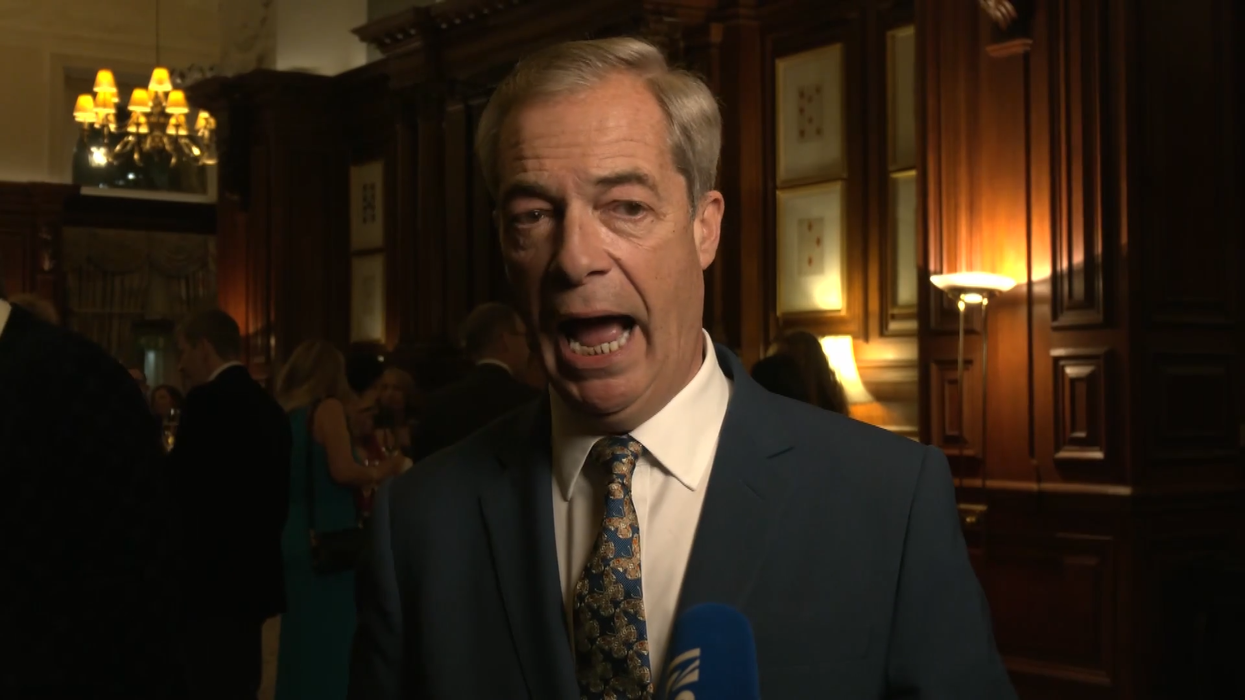'Brussels Nat Con farce was a monstrous attack on free speech AND human rights'

Nigel Farage was present at the National Conservatives conferenc
| GB NEWSSteven Barrett gives his verdict on the farce of the National Conservative Conference in Brussels
Don't Miss
Most Read
Latest
A group called the National Conservatives wanted to have a conference in Brussels. The group is made up of established political figures. It included British MPs, former MEP, serving European MEPs, the Prime Minister of an EU Member State and a Catholic Cardinal. They wanted to discuss their political views.
Two venues initially accepted the booking. Then declined – under outside political pressure from political opponents of conservatism. A third venue, owned, as it turned out by a Tunisian family, held its nerve. Now, we might think that that is bad enough. That that itself is a monstrous attack on free speech. But that’s your opinion.
What happened next was, on any view, extreme. A mayor of the city, announced that he was personally determined the event must not occur. So he used his purported powers, to tell the police to close the event down.
Watching this at the time, being an English lawyer, trained in the Human Rights Act and thus the list of rights contained in the convention. I was able to immediately tweet that this was a breach of those rights.
Thinking a little longer, I then realised that this would also be a breach of EU Fundamental rights. Reader, because they dislike each other and are in many ways rivals for undemocratic power, the EU and ECHR do not get on. As a result, despite promising to join the ECHR by treaty 16 years ago, the EU never did. Instead it drew up its own list of, largely the same, fundamental rights (you may feel free to roll your eyes at this point).
So I was able to tweet that this police action by the Mayor would also breach those rights.
Then I set about reading the Belgian constitution. I am a scholar of our constitution, and I do read a lot of others, although I wouldn’t claim to be expert in any but our own. But my gut feeling was that Belgium would protect free speech in its constitution. So I read it. By mid afternoon, I had decided that the police action was probably a breach of article 26 of the Belgian constitution – the right to freedom of assembly.
So I went on Martin Daubney on GB News to say so.
What was deafening in its silence during this period was the UK Human Rights industry. Because we have quite a large industry of lawyers who fully devote themselves to human rights. They can, at times, be quite sniffy at me. Pretending that I am not qualified to talk about human rights.
Now I am, so it’s just a silly argument. But I’d like to explain how offensive it really is. Law is the process of consistently applying rules. And like computer code, it grows in complexity the more you do it. Think of it like a mighty tree, with complicated branches, then sub branches, then green spurts and leaves and veins inside those leaves – all of them lines made out of consistently applied rules.
Compared to the colossally complicated legal areas of law I work in – banking and finance, or trusts for example (both mighty oaks), Human Rights is a twig. It is back to basics law.
By early evening the PM of Belgium agreed with me. By next morning the Belgian Court agreed with me – and specifically cited Article 26. But throughout this monstrous assault on human rights, our human rights lawyers stayed silent – how much use to you do you think they’ll be if there is ever a crisis here?
Steven Barrett is a UK barrister










